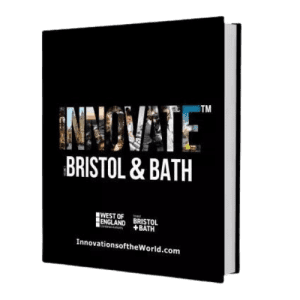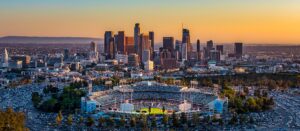‘THOUSANDS HAVE LIVED WITHOUT LOVE, NOT ONE WITHOUT WATER.’ (W.H. Auden, First Things First)
As someone whose life has been spent on the innovative interface between education and the creative industries, I have always been fascinated by the relationships between what we need and what we want – ‘love’ or ‘water’? This question plays out at international, national, regional and local levels. Internationally, the seventeen UN Sustainable Development Goals set the world an unprecedented curriculum – Goal 6 is ‘clean water’. Nationally in the UK, the Industrial Strategy was also aligned to material needs, with four ‘grand challenges’: artificial data and intelligence, ageing society, clean growth, future of mobility. The strategy is explicitly targeted at areas where the UK Government feels in the ‘lead’ with capacities for ‘economic transformation’, maximising GDP and linear return on investment. This is potentially at odds with the UN SDGs, where the drivers are planetary transformation , societal transformation and personal sustainability. This is a much more circular and interconnected map than ‘arrowhead’ GDP. The goals overlap constantly, so my categories are arbitrary; clean water, good health, and education are of course societal, personal and planetary. But my point is simple – the way forward is recognising the inextricable interconnection and the symbiotic role of complex drivers, rather than the pretence of isolated ‘challenge’ elements.
In order to address these underlying symbioses we must rethink our concept of value along the lines of Kate Raworth’s Doughnut Economics, replacing self-centred neoliberal ‘rational economic man’ with environmentally attuned and societally integrated individuals. We need ‘water’ and ‘love’, or as Raworth says, ‘we need to put life at the heart of the economy, not the economy at the heart of life’.
‘HUMANS NEED WORK. WHY ELSE DID WE INVENT THE ALARM CLOCK?’ (PICASSO, DIARIES 1931)
Just a Quick Note:
InnovationsOfTheWorld.com has partnered with Trade License Zone (TLZ) to support global innovators looking to expand internationally. Take advantage of the UAE’s Free Zones—enjoy streamlined setup, low corporate taxes, and a strategic gateway to the Middle East and beyond.
Get Your UAE Free Zone License Fast & Easy!What I find intriguing is that the future of work runs as a constant interconnector across all the UN SD Goals. Therefore, the precise nature of that work, and how education as a lifelong learning whole society process interacts with it, seems to me just about the most urgent question we face.
‘NOTHING IS EVER ONLY ONE THING’ (VIRGINIA WOOLF, NOTEBOOKS, 1931)
If the future of work and the future of education are inextricably linked, then the future of our survival is, I’d suggest, dependent on both. For example, we have not yet begun to migrate our thinking from ‘climate emergency’ to ‘human emergency’ . What we teach, how we do so, and what contract exists between curriculum and business/community must start to address the real underlying questions with unprecedented urgency. I’d like to posit four challenges:
- Trans-disciplinary AND trans-level. In work we constantly cross disciplines ‘horizontally’ and levels ‘vertically’. Why not in education? Our project, ISTART, is actually doing this, blending skills/innovation/research across two Universities, a vocational College, a local authority and 70+ businesses including a world leading innovation centre.
- Social Value as a KPI. We like product and manufactured value because it is easy to measure. COVID 19 has exposed the imperatives of collective connectivity. The question must migrate from ‘how much profit does it make, to how much good does it do?’
- Technology to Make Life Better. It isn’t technology that has landed us in our current collective pickle, it‘s human behaviour. ow can we use technology humanely? .
- Partnership as default. The UN SD Goal 17 is Partnerships. The notion of singular expertise or solutions simply no longer works. he current estimate is that a 2021 UK graduate will have 7 careers. How can we in prepare them for the future of work with single pathway thinking? For us, our goal must be to diversify; by working together we achieve outcomes none of us can leverage on our own.
If you are interested in further discussion from a business, enterprise, innovation perspective we would be delighted to meet you. Thank you, Andy.














